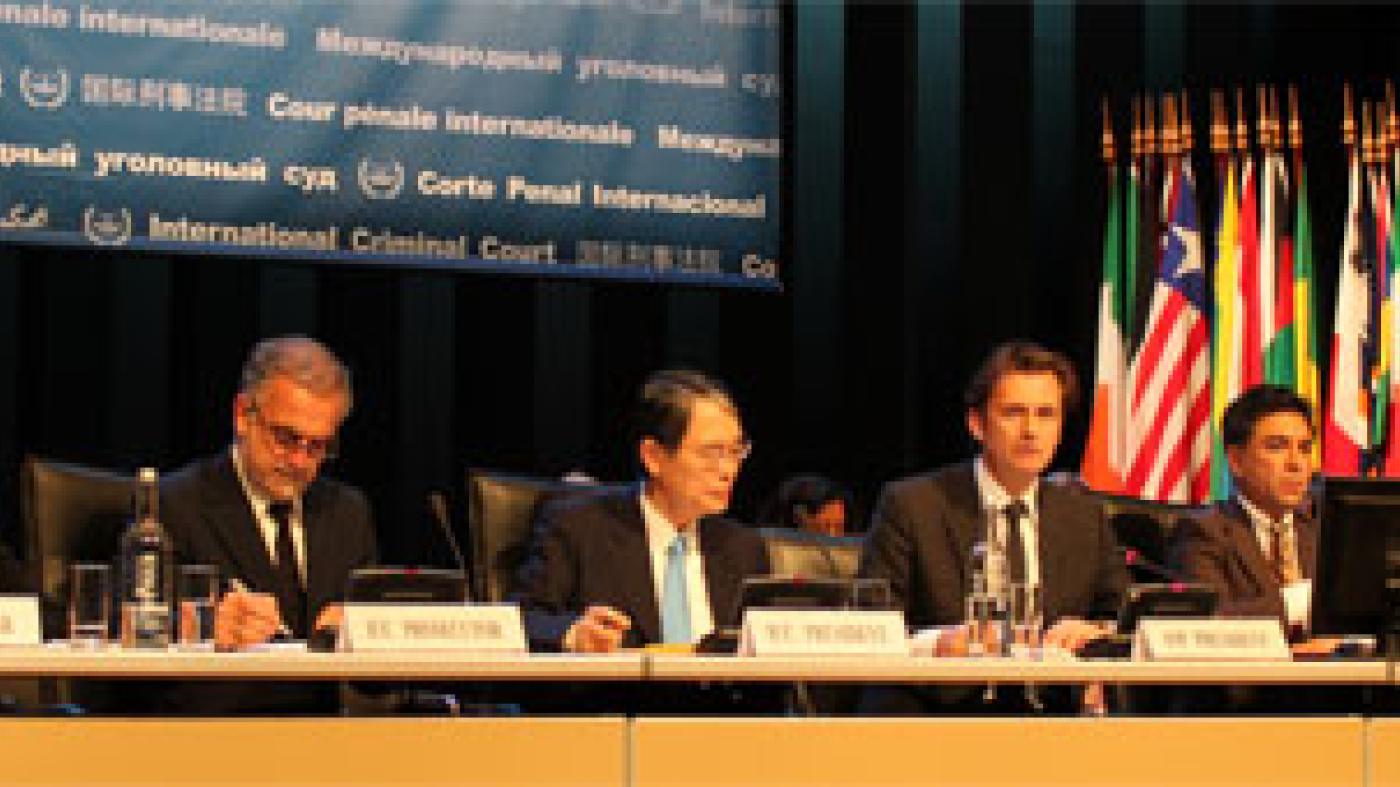
The eighth session of the Assembly of States Parties to the Rome Statute of the International Criminal Court (“the Assembly”) opened on 18 November 2009 at the World Forum Convention Center in The Hague. The President of the Assembly, H.E. Mr. Christian Wenaweser, Permanent Representative of Liechtenstein to the United Nations, opened the session, which will last until 26 November 2009.
Since the second resumption of the seventh session in February 2009, two States, namely Chile and the Czech Republic, have become Parties to the Rome Statute, bringing the total number of States Parties to 110.
At its first plenary meeting, the Assembly adopted its agenda for the session and agreed on the organization of work. The main issues for consideration by the Assembly include: continuing the discussions on the Review Conference of the Rome Statute, including discussions on the proposed amendments to the Statute, consultations on the premises of the Court, and the approval of the budget for 2010.
The proposals to amend the Rome Statute include: the inclusion of the use of particular weapons in the definition of war crimes in article 8 (Belgium), adding the employment of nuclear weapons or the threat to employ nuclear weapons to the definition of war crimes in article 8 (Mexico), the inclusion of the Crime of Terrorism within the Court’s jurisdiction in article 5 (Netherlands), amending article 103 to include enforcement of sentences in a national prison facility or in a prison facility 2 made available to the State by an international or regional organization, arrangement or agency, as provided in the Rules of Procedure and Evidence (Norway), inserting the Crime of Aggression in article 8 bis (Special Working Group on the Crime of Aggression), and the inclusion of the crime of international drug trafficking within the Court’s jurisdiction in article 5 (Trinidad and Tobago and Belize).
The Assembly was addressed by the President of the Court, Judge Sang-Hyun Song, by the Prosecutor, Mr. Luis Moreno-Ocampo, the Registrar, Ms. Silvana Arbia, and by Mr. Bulgaa Altangerel (Mongolia) a member of the Board of Directors of the Trust Fund for Victims.
At the first plenary meeting, the following were elected as members of the Board of Directors of the Trust Fund for Victims for a three year period: Mr. Bulgaa Altangerel (Mongolia), Ms. Betty Kaari Murungi (Kenya), Mr. Eduardo Pizarro Leongómez (Colombia), Ms. Elisabeth Rehn (Finland), and Ms. Vaira Vīėe-Freiberga (Latvia). At the second plenary meeting, after six rounds of balloting, the Assembly filled two judicial vacancies with the election of Ms. Silvia Fernández de Gurmendi (Argentina) and Ms. Kuniko Ozaki (Japan), for a mandate that would end in March 2018.
The Assembly of States Parties is the management oversight and legislative body of the International Criminal Court. It is composed of representatives of the States that have ratified or acceded to the Rome Statute. The Assembly has a Bureau, consisting of a President, two Vice-Presidents and 18 members, elected for a three-year term. The Vice-Presidents are H.E. Mr. Jorge Lomónaco (Mexico) and H.E. Mr. Zachary Muburi-Muita (Kenya).
Bureau
African States: Burkina Faso, Gabon, Kenya, Nigeria and South Africa.
Asian States: Japan, Jordan and Samoa.
Eastern European States: Estonia, Georgia, Romania and Slovenia.
Latin American and Caribbean States: Brazil, Mexico, Trinidad and Tobago and
Venezuela (Bolivarian Republic of).
Western European and Other States: Australia, Liechtenstein, Norway, Spain and the United Kingdom of Great Britain and Northern Ireland.
For further information on the eighth session of the Assembly of States Parties, please contact Ms. Suzan Khan at +31-615-364-515 or [email protected]